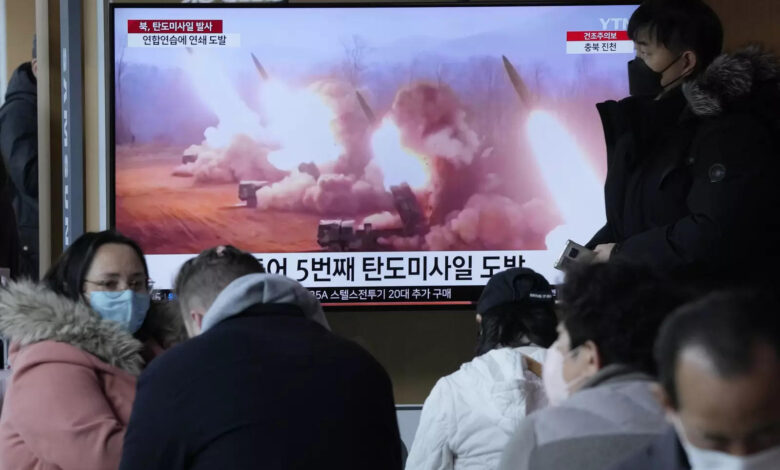North Korea Launches 2 Missiles to Sea as Allies Hold Drills

North Korea test-fired two short-range ballistic missiles in another show of force Tuesday, a day after the U.S. and South Korea began military drills that Pyongyang views as an invasion rehearsal.
The missiles launched from the southwestern coastal town of Jangyon flew across North Korea before landing in the sea off that country’s east coast, South Korea’s Joint Chiefs of Staff said in a statement. It said both missiles travelled about 620 kilometers (385 miles).
The reported flight distances suggest the missiles target South Korea, which hosts about 28,000 U.S. troops. South Korea’s military called the launches “a grave provocation” that undermines stability on the Korean Peninsula.
The U.S. Indo-Pacific Command said Tuesday’s launches don’t pose an immediate threat to its allies. But it said the North’s recent tests highlight the “destabilizing impact” of the North’s unlawful weapons programs and that the U.S. security commitment to South Korea and Japan remains “ironclad.”
Japanese Prime Minister Fumio Kishida told reporters that officials were still gathering details of the North Korean launches and there has been no immediate reports of damage in Japanese waters.
Pyongyang could further escalate its weapons tests over the coming days in a tit-for-tat response to the allies’ military drills, which are planned to run until March 23. Last week North Korean leader Kim Jong Un ordered his troops to be ready to repel what he called the “frantic war preparations moves” by his country’s rivals.
Worries about North Korea’s nuclear program have grown sharply after the North last year test-fired more than 70 missiles, many of them nuclear-capable weapons, and openly threatened to use them in potential conflicts with the United States and South Korea.
North Korea appears to be using long-stalled talks with the United States and the expanding U.S.-South Korean drills as a chance to enlarge its weapons arsenals to increase its leverage in future dealings with the United States.
The North Korean threats, along with China’s increasing assertiveness, have pushed the United States to seek to reinforce its alliances with South Korea and Japan. But some experts say a solidified Washington-Seoul-Tokyo cooperation could prompt Pyongyang, Beijing and Moscow to strengthen their own trilateral ties. China and Russia, embroiled in separate confrontations with the U.S., have repeatedly blocked U.S. and its allies’ bids to toughen U.N. sanctions on North Korea.
Tuesday’s launches were the North’s second weapons test this week. On Monday, North Korea said it had test-fired two cruise missiles from a submarine the previous day. It implied the cruise missiles were being developed to carry nuclear warheads, though outside experts debate whether North Korea possesses functioning nuclear-armed missiles.
North Korea acquiring submarine-launched missile systems would be an alarming development because launches would be harder to detect and would provide the North retaliatory second attack capability. However, experts say it would take years, extensive resources and major technological improvements for the heavily sanctioned nation to build a fleet of submarines that could travel quietly and reliably execute strikes.





